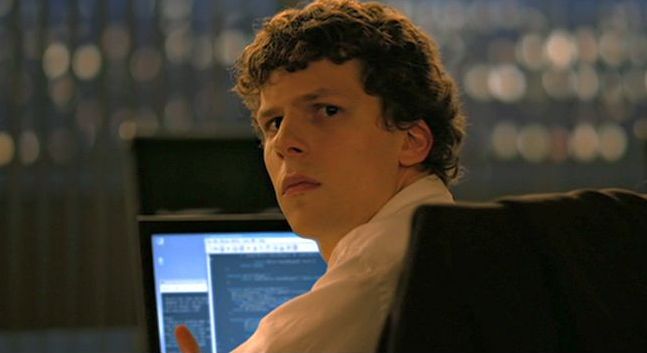
Where would the world be without the Internet or social media? From feature films to documentaries and short films, the film industry is exploring the positives and negatives about the modern world and how we all communicate with each other.
There are some obvious choices here, from “The Social Network” to some more obscure ones. However, they all explore the connection to our world and the Internet and social media.
1. The Social Network (2010)
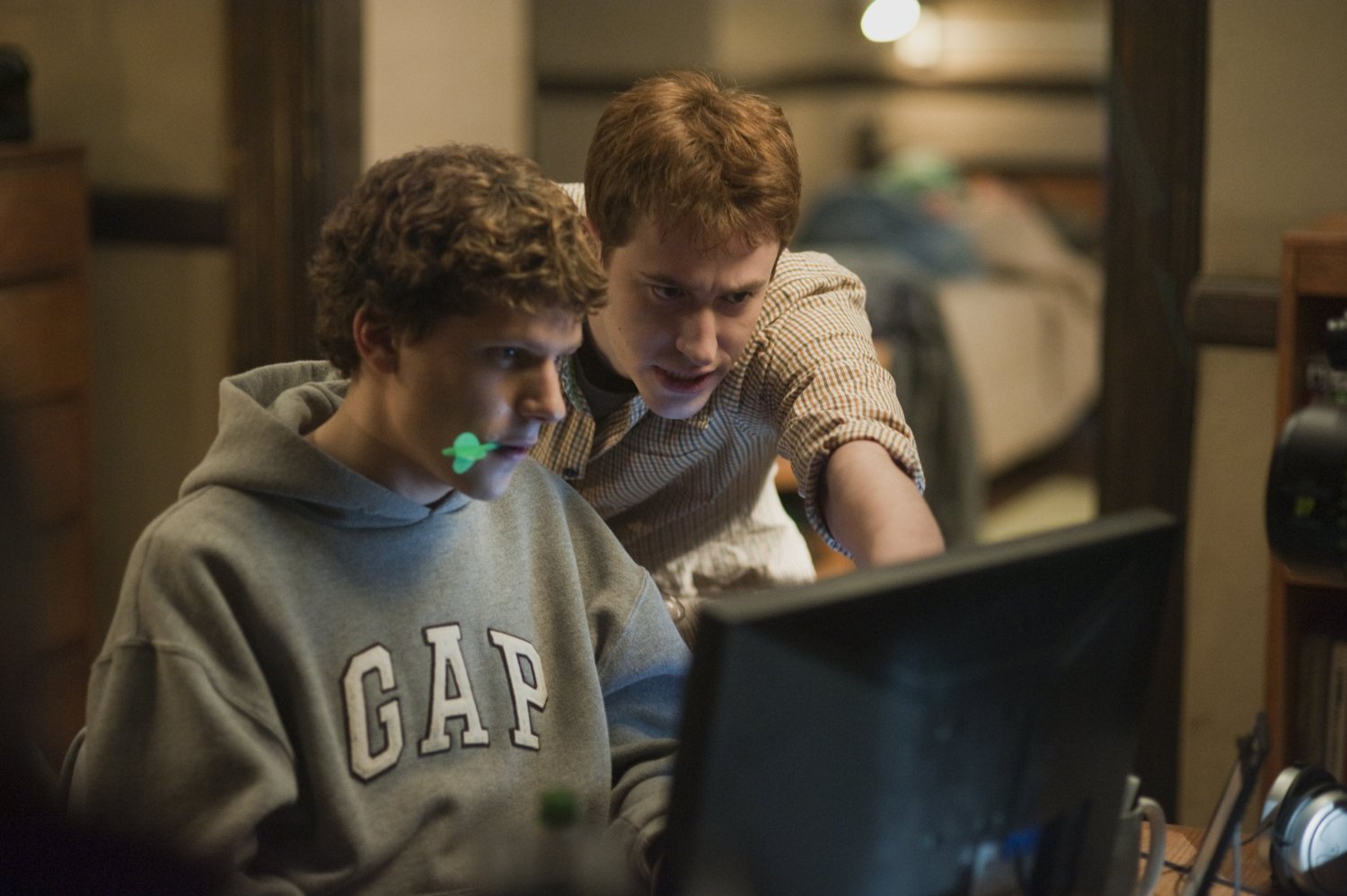
You knew this one was coming. “The Social Network”, based on Ben Mezrich’s 2009 book “The Accidental Billionaires: The Founding of Facebook, A Tale of Sex, Money, Genius, and Betrayal”, portrays the founding of social networking website Facebook and the resulting lawsuits.
The film stars Jesse Eisenberg as founder Mark Zuckerberg, along with Andrew Garfield as Eduardo Saverin and Justin Timberlake as Sean Parker. Although it may not exactly be a 100 percent accurate depiction of Facebook’s founding, but it does perfectly use Zuckerberg’s life as a metaphor about communication and alienation in the modern age.
Even if fictionalized slightly, “The Social Network” has a great screenplay by Aaron Sorkin, flawless direction by David Fincher, and a hypnotic score by Trent Reznor and Atticus Ross.
“The Social Network” was nominated for eight Academy Awards including Best Picture, Best Director for Fincher, and Best Actor for Eisenberg, and won three for Best Adapted Screenplay, Best Original Score and Best Film Editing. The film appeared on 70 critics top 10 lists of the best films of 2010. Since its release, “The Social Network” has been cited as involvement in start-ups and social media. It is one of the most forward-thinking modern pictures of our generation.
2. We Live in Public (2009)
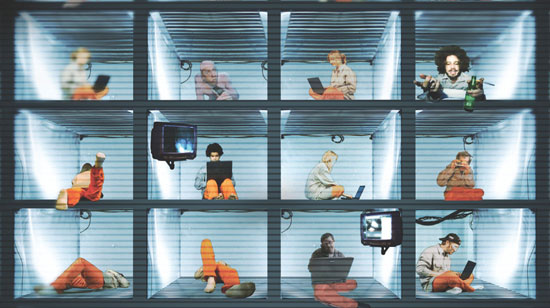
This documentary from 2009 by Ondi Timoner profiles the life of Internet pioneer Josh Harris, who founded JupiterResearch and Pseudo.com, a live audio and video webcasting website founded in 1993, which filed for bankruptcy following the end of the dot-com bubble in 2000. Its theme is the loss of privacy in the Internet age.
“We Live in Public” was screened six times at the Sundance Film Festival. It was awarded the Grand Jury Prize award in the US documentary category at the festival.
Timoner is the first director in the history of the Sundance Film Festival to win the Grand Jury award twice. Her first win was in 2004 for the widely acclaimed documentary, “DIG!” The title comes from a public art project “Quiet: We Live in Public”, where 100 artists were placed in a human terrarium under New York City, with myriad webcams following and capturing every move the artists made.
With how much social media and the Internet has taken over our lives, life feels this way sometimes. That feeling that you were not really there unless you posted something about it, how everyone is watching your actions and how life can be so different in and out of the internet world.
3. Catfish (2010)
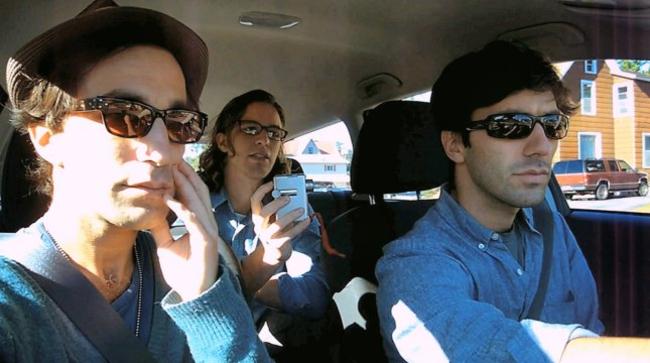
“Catfish” begins in late 2007 as filmmakers Ariel Schulman and Henry Joost felt a story in progress while filming the life of Ariel’s brother, Nev. The filmmakers did not know that the months of filming would be some of the toughest and most uncomfortable in their lives. Nev had a romantic relationship with a young woman on Facebook.
The film was a critical and commercial success. It premiered at the Sundance Film Festival in early 2010. It led to an MTV reality TV series, “Catfish: The TV Show”, which premiered in 2012, and is currently in its fourth season. Nev, the protagonist of the film, took over the role of the investigator in the “catfish” relationships.
The film received positive reviews; it holds an 80% rating on Rotten Tomatoes, with the site’s consensus being “Catfish may tread the line between real-life drama and crass exploitation a little too unsteadily for some viewers’ tastes, but it’s timely premise and tightly wound mystery make for a gripping documentary”. The term “catfish” is now a part of the lexicon of cultures.
4. Disconnect (2012)
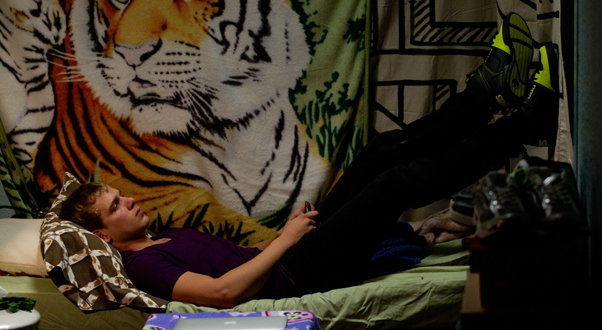
Directed by Henry Alex Rubin and starring an ensemble cast that includes Jason Bateman, Hope Davis, Frank Grillo, Andrea Riseborough, Paula Patton, Michael Nyqvist, Alexander Skarsgård, and Max Thieriot, “Disconnect” explores how people experience the negative sides of modern technology and communication by following three connected stories.
A lawyer attached to his cell phone, but who can’t find the time to communicate with his family; a couple who has their secrets exposed online; an ex-cop raising a mischievous son who cyber-bullies a classmate; and an ambitious journalist working on a career-making story regarding a teen that performs on an adult-only site.
“Disconnect” opened in limited release on April 12, 2013 in 15 theaters and grossed $124,000 with an average of $8,267 per theater, ranking #31 at the box office. The film’s widest release domestically was 180 theaters and it ended up earning $1,436,900 in the United States and $1,991,148 internationally, for a total of $3,428,048.
“Disconnect” received positive reviews when it premiered at the Toronto Film Festival and the critical consensus said it is a timely, effective exploration of modern society’s technological overload.
5. The Matrix (1999)
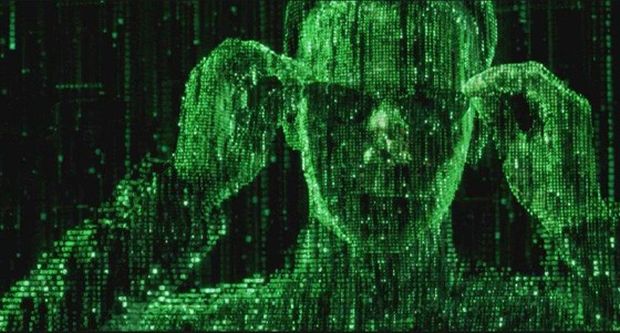
This modern classic directed by the Wachowskis, starring Keanu Reeves, Laurence Fishburne, Carrie-Anne Moss, Hugo Weaving, and Joe Pantoliano, depicts a dystopian future where reality is perceived by most to be a virtual reality universe called “the Matrix”. Computer hacker Neo learns the truth about the machines, which are subduing the human population, and is drawn into a rebellion against the machines, which involves other people who have been freed from the “dream world”.
The film changed special effects in film, introducing the concept of “bullet time”; the bullet time sequences being what everyone thinks about in that movie.
“The Matrix” grossed more than $460 million and won four Academy Awards in technical categories. In 2012, the film was added to the National Film Registry. “The Matrix” spawned two successful sequels and the franchise was further expanded into the production of comic books, video games, and animated short films in which the Wachowskis were heavily involved.
“The Matrix” made audiences contemplate if this was where we headed, a bending of reality and virtual reality, the skill and prowess of humans and robots. The film introduced audiences to a world where the future of Earth could be a utopia or the worst place to live.